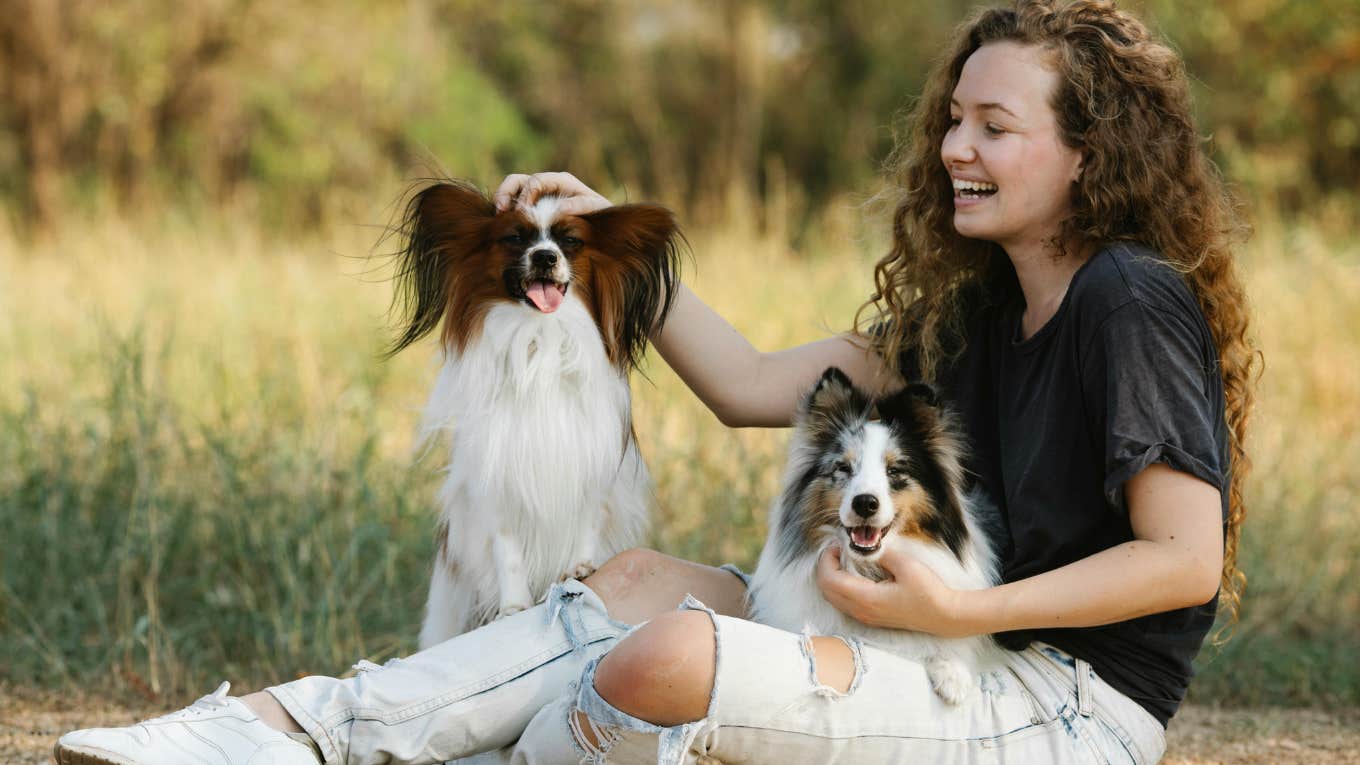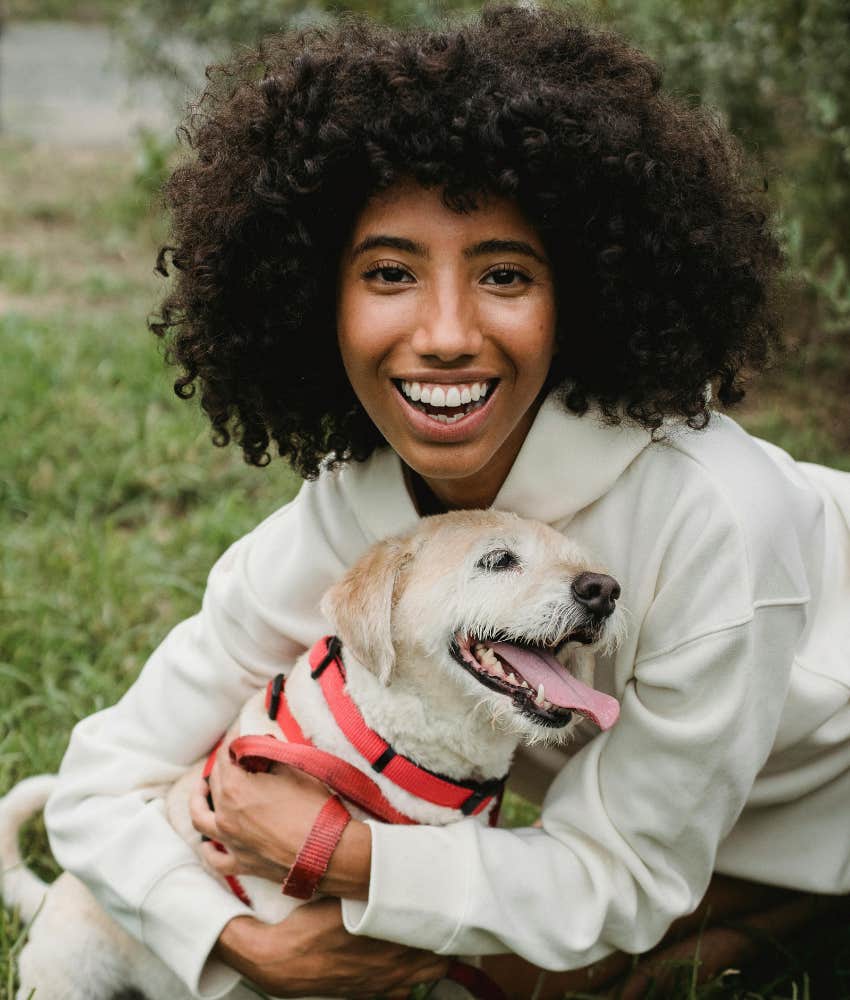Dog Mom Reveals Why Pet Owners Should Say No To Petting Requests From Strangers More Often
Strangers might not like it, but she has a good reason.
 Bluebird / Shutterstock
Bluebird / Shutterstock Dogs are more than just adorable animals who live in our homes. They’re our besties, our babies, our closest confidantes.
Dogs are the embodiment of love and affection, so it’s no wonder that people ask to pet your pup when you’re out and about, but letting strangers near your dog isn’t always the best idea.
A dog mom revealed why pet owners should say no to petting requests from strangers.
“People get so wound up and uptight when you say, ‘No, you can’t pet my dog,” she said.
The unnamed woman explained that her no-pet rule is based on the type of training she does with her dog, a German Shepard named Kaos.
“People don’t understand why you would do that kind of training, but there’s [sic] been so many people that have walked past us, run past us, we’re here on a trail, children, people with bikes,” she continued.
“We’ve been playing fetch. He’s off-leash. He has not once tried to chase a person, tried to say 'hi' to a person, tried to get affection from a person, nothing,” she said.
“And you know why? Because I have never in my life set the expectation for him or set the idea for him that people mean pet, that people mean love, that people mean affection, that people mean friends.”
 Samson Katt / Pexels
Samson Katt / Pexels
She believes that Kaos’s well-behaved demeanor is rooted in the fact that she doesn’t allow strangers to pet him, which in turn, allows him to be his chilled-out self in public without any worry he’ll act out.
“He’ll come here, he’ll lay down in the grass, and that’s what he’ll do,” she said. “He’ll never run up at a person, you know why? Because I never let people pet him.”
“He does not see a person and think, ‘Oh, I’m gonna go over there because I want their love,’ and that’s what saying ‘no’ gets you,” she concluded.
By implementing a no-petting rule, dog owners can train reactive dogs to stay calm in the presence of strangers.
According to the American Kennel Club, there’s a distinct difference between reactive behavior and aggressive behavior in dogs, yet a reactive dog can easily become aggressive if triggered.
The AKC defines reactivity in dogs as an excessive response to normal occurrences, like seeing other people while taking a stroll during their daily sniffy walk. A reactive dog might lunge, bark, or pull on their leash, actions that are out of proportion to the situation.
When a reactive dog is triggered, it’s hard for them to calm down and listen to their owner, meaning whatever training you’ve done goes out the window.
Fear is often an underlying emotional cause for reactivity, but dogs can also be triggered by excitement or frustration. Overall, reactivity is caused by a lack of emotional self-control.
The AKC characterizes aggression as threatening or harmful behavior that can cause damage to other people or animals. Aggression is normal dog behavior, and in the right context, can be adaptive or appropriate to the situation.
There are various types of aggression, including maternal aggression, resource guarding, territorial aggression, protective aggression, and pain aggression, which is when a dog in discomfort defends themself against touch or movement that might cause more pain.
 Nataliya Vaitkevich / Pexels
Nataliya Vaitkevich / Pexels
A reactive dog can become an aggressive dog because they enter a heightened emotional state, where they're more likely to respond with fight, flight, or freeze than to think through what they’re doing.
The first step to managing a reactive dog is to identify what their triggers are. Consistent training is essential, which is why having a no-petting rule makes sense.
Dogs don’t have to get along with every other person or pup they see. It’s more than okay to set boundaries around strangers petting your dog — After all, “No” is a complete sentence.
As with all caregiving roles, pet parents can use whatever tactics work best to keep their dog happy, healthy, and stress-free.
Alexandra Blogier is a writer on YourTango's news and entertainment team. She covers social issues, pop culture, and all things to do with the entertainment industry.

